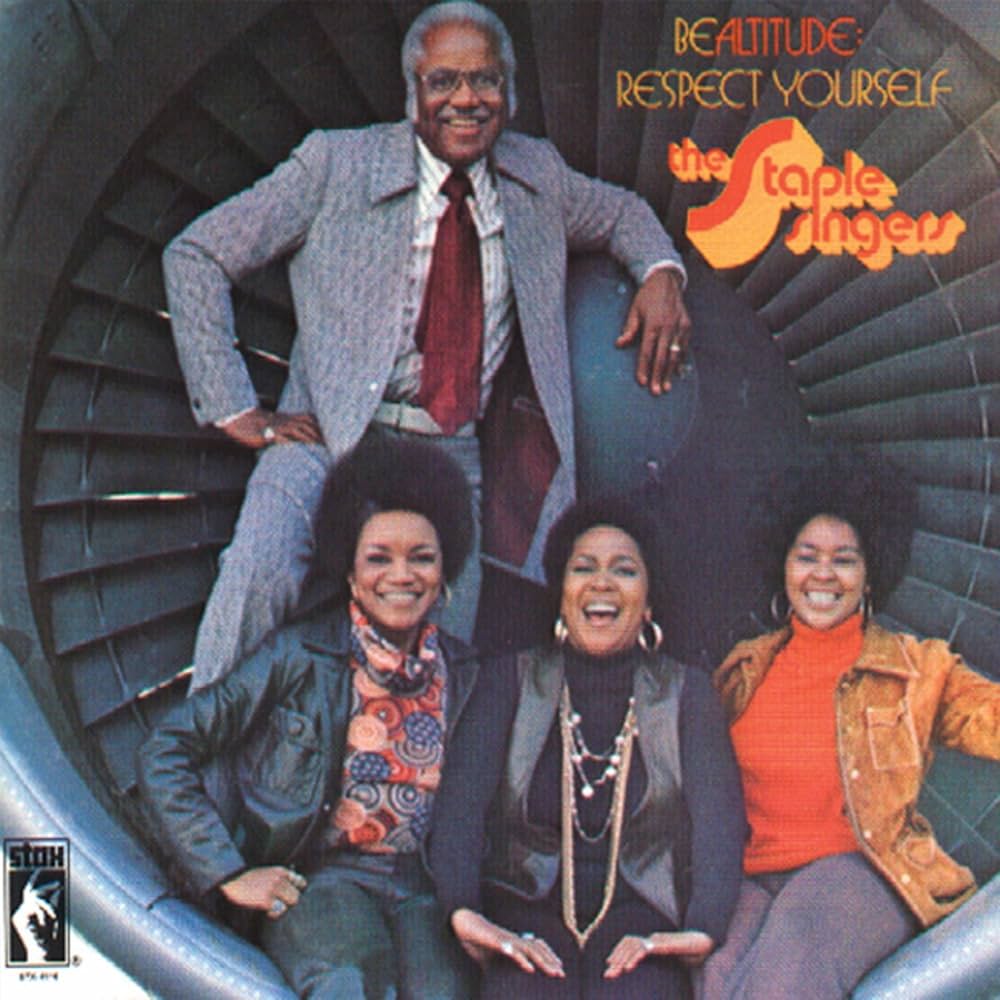Introduction
The Staple Singers were an American gospel, soul, and R&B group formed by Roebuck “Pops” Staples and his children. Renowned for their distinctive blend of gospel, soul, and social consciousness, the group played a significant role in the civil rights movement and left an indelible mark on American music.
Formation and Early Years
Formation
The Staple Singers were formed in 1948 in Chicago, Illinois. The original lineup consisted of Roebuck “Pops” Staples and his children Cleotha, Pervis, and Mavis Staples. Yvonne Staples replaced Pervis when he was drafted into the army in 1970.
Early Success
Initially performing in local churches and gospel circuits, the Staple Singers gained recognition for their unique sound, which combined traditional gospel with elements of blues and R&B. Their early recordings on Vee-Jay Records in the 1950s, such as “Uncloudy Day,” helped establish their reputation.
Rise to Fame
Transition to Secular Music
In the 1960s, the Staple Singers began incorporating more secular themes into their music, addressing social issues and aligning themselves with the civil rights movement. Their transition to secular music was marked by their signing with Stax Records in 1968.
Breakthrough Albums and Hits
Their tenure with Stax Records brought mainstream success with hits like “I’ll Take You There,” “Respect Yourself,” and “If You’re Ready (Come Go with Me).” These songs not only topped the charts but also became anthems for the civil rights movement.
Musical Style and Innovations
Blend of Gospel and Soul
The Staple Singers’ music is characterized by a blend of gospel and soul, with Pops Staples’ distinctive guitar playing and Mavis Staples’ powerful, raspy voice at the forefront. Their music often featured rich harmonies, socially conscious lyrics, and a rhythmically driving sound.
Socially Conscious Lyrics
Their songs frequently addressed themes of equality, justice, and empowerment, resonating with the struggles and aspirations of the African American community during the civil rights era.
Major Albums and Hits
- “Be Altitude: Respect Yourself” (1972): Featuring the hits “I’ll Take You There” and “Respect Yourself.”
- “Be What You Are” (1973): Included “If You’re Ready (Come Go with Me).”
- “Let’s Do It Again” (1975): Title track written by Curtis Mayfield, which became a number-one hit.
- “Soul Folk in Action” (1968): Marked their transition to Stax Records and included socially conscious tracks like “The Ghetto.”
The Very Best Of The Staple Singers Playlist:
The Staple Singers YouTube Channel:
https://www.youtube.com/@thestaplesingers/featured
Impact and Legacy
Influence on Music
The Staple Singers influenced numerous artists across genres, including soul, R&B, and gospel. Their ability to blend gospel messages with secular themes paved the way for future generations of musicians to explore social and political issues in their music.
Cultural and Social Impact
The Staple Singers were closely associated with the civil rights movement, often performing at rallies and events organized by Martin Luther King Jr. Their music provided a soundtrack for the movement, inspiring and uplifting those fighting for equality and justice.
Awards and Recognition
- Rock and Roll Hall of Fame: Inducted in 1999, recognizing their contributions to music and their lasting impact on the industry.
- Grammy Awards: Multiple Grammy Awards and nominations, including a Lifetime Achievement Award in 2005.
- National Rhythm & Blues Hall of Fame: Inducted for their contributions to the genre.
Continued Influence
Mavis Staples, as a solo artist, has continued the legacy of the Staple Singers, collaborating with contemporary artists and maintaining their message of social consciousness and empowerment.
Later Years and Ongoing Influence
Solo Careers
Pops Staples and Mavis Staples both pursued successful solo careers, with Mavis Staples receiving critical acclaim for her solo work in the 21st century. Her collaborations with artists like Wilco’s Jeff Tweedy and her participation in the documentary “Mavis!” have kept the group’s legacy alive.
Legacy and Honors
The Staple Singers’ music continues to be celebrated and covered by artists today. Their influence on gospel, soul, and R&B remains profound, and their songs continue to be relevant in discussions about social justice and empowerment.


Leave a Reply